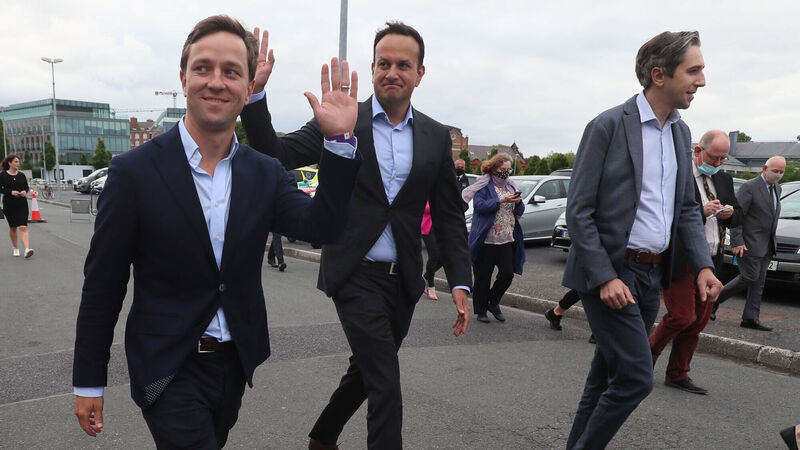Daniel McConnell: By-election defeat a wake-up call for Varadkar and Martin

Fine Gael candidate James Geoghegan, Tánaiste Leo Varadkar, and TD Simon Harris arriving at the count centre for the Dublin Bay South by-election at Simmonscourt, RDS in Ballsbridge, Dublin. Picture: Brian Lawless/PA Wire
In 2013, then-taoiseach Enda Kenny received as he called it a "wallop" from the Irish people when they rejected his attempt to abolish the Seanad.
He and his government were left humiliated just two years into office.













